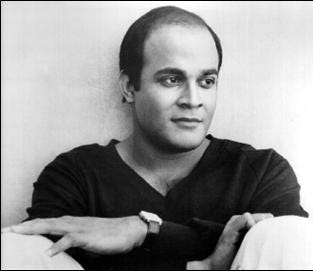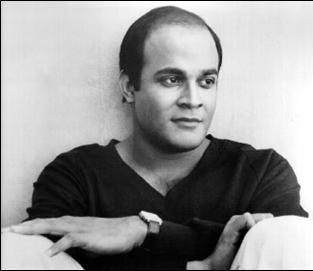Regional theaters are an important proving ground for new playwrights, directors and actors, and Buffalo’s Alleyway Theatre, a member of the National New Play Network, takes its job seriously. A few months ago, while scrolling through listings for contests I might want to submit my own scripts to, I saw Alleyway calling for readers to help vet scripts submitted for the Maxim Mazumdar award, founded in 1989, a year after the death of its namesake Canadian playwright.
Figuring it would do me some good to sit on the other side of the reading pile for once, I signed up and was assigned ten plays to read and score according to a rubric meant to determine the play’s readiness, appeal and theatricality. I was prepared to read 10 bad scripts. These “slush piles” of manuscripts are notorious environs for terrible writing. The best and most established writers bypass this submission process, having their people deliver their work directly to decision-makers. The slush piles at publishing houses, literary magazines and theaters are often assigned to interns, employees just starting out or, in this case, volunteers.
I did, to be fair, have to give some qualifications. My degree is in playwriting, I have had work produced around the country (and once at an army base in Kenya) and I’ve worked as a dramaturg on a few new scripts. Still, I don’t know anybody at Alleyway and have no pull there and, as a playwright, I do not have people who deliver my scripts to literary managers and artistic directors. My work goes to the slush pile or among the contest entries, too. As a writer, you worry that your work cannot stand out even to an enthusiastic young reader who has been inundated with dreck. You also worry that even if they do love your work that they don’t yet have the clout to get you produced or published. It all seems very hopeless sometimes.
Well, my experience reading for Mazumdar was gratifying and it both bolsters and dashes my hopes. First, good on the Alleyway literary team for providing a rubric and scoring system that allows for each play to be judged on its merits, alongside room for some qualitative commentary from the readers.
Second, good on them for their instructions, which I followed to the letter: I read each play in one sitting, to experience the story the way an audience member would. I read each play from first to last word, even if it wasn’t working for me in the first few pages. As they point out, if you don’t read the ending of Our Town because you didn’t like the first few scenes, you have no idea what the play is about and your assessment of it is, at best, suspect. My personal goal was to give each playwright a careful, attentive and generous read — basically to treat their work with more respect than I think mine has received from gatekeepers over the years.
These are all full length plays, coming in at 70-150 pages. Scripts do read a lot more quickly than prose, but conceiving and structuring a full length play is a lot like trying to write a novel and the process can take many months. In some ways, writing a play is more challenging. If a novelist wants to suddenly cut to a scene in Monaco, they just do it. That can be done on stage but unity of setting is often part of the craft and wild changes do affect how or if a play can be produced. If you want to add a funny waiter into a scene in a novel, never to be mentioned again, you can do that. If you do that in a play, you are asking a theatre to find, cast and care for an actor who might be on stage for only a few moments. So, every playwright here really worked hard.
Well, I am happy to report that I enjoyed reading all 10 plays. I liked 9 of ten of them and found 8 of them to be production worthy. That is crazy. I am not going to name the plays or describe them in much detail as I have no idea when the award will be given, how many plays were submitted (I suspect, if they invited volunteer readers they got submissions in the thousands) and I don’t want to hurt any feelings. The plays were submitted blind, so I do not know who wrote them, but they can probably find recognize their plays even by broad descriptions. I know I could. I don’t want to get hopes up, either, because I have no idea if my positive responses will sway the decision makers in Buffalo.
The one play I didn’t love was a genre piece and I felt bad for not loving it, because I think it’d be good to have more science fiction, fantasy, romance or even self-help and business books on stage. If people buy such things online or in bookstores, they might buy tickets for them as well.
The plays that I liked explored theatricality in new ways. Some dealt with artificial intelligence and many confronted the masks we wear in public to seem competent, nice and likable. Themes included climate change and social change. My favorite of the bunch reminded me of Tom Stoppard and told what was for me, a new story about our collective history. In these plays I saw the influences of John Patrick Shanley, Maxwell Anderson and Tina Fey.
Maybe I got a lucky batch, but it is kind of scary to see just how many good plays there are, chasing dwindling budgets and opportunities. People really want to do this, despite the long odds of production and people’s preferences for streaming television and TikTok videos over all other entertainment.
I have no idea how my playwrights will fare as Alleyway progresses towards declaring a winner, but if I see one of the plays I read in the final spot, I won’t be in the least surprised.



How sad that there are so many worthy writers having to compete with thousands of others who probably won't make it, either. It could be depressing, but your piece here is kind of inspiring. Nine out of ten hit home with you! Good writing prevails, even with those sucky odds. Writers will write, no matter what.
This made me remember my trips to the library when I was a kid, where I gathered books of plays. A strange hobby for a kid, but I think now it wasn't just because I loved theater (I wanted to be an actress, but I was terrible at it), but because I loved dialogue. Also, it was easier to read than long passages of prose, which I also tried to read, most of it far beyond my years. But there is magic in those conversations, so necessary in the theater because of space limitations. The dialogue has to do the work. It has to tell the story.
Playwriting is hard. As you've indicated, it's often harder than other forms of writing because of the limitations of stagecraft. The writer has to think of the visual as well as the dialogue and the plot. It has to work on a stage in a theater, with acts as chapters, with a live, paying audience full of impatient critics.
That's intimidating! So bravo to those who even attempt it, let alone master it.
And bravo to you for being generous to your fellow writers, for taking the time to give them their moment. We need more of this.